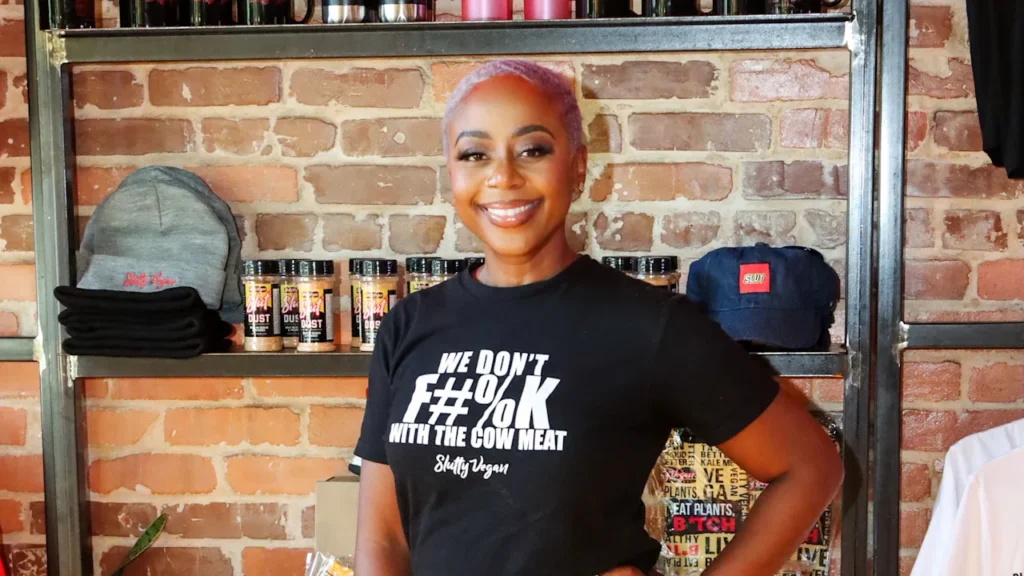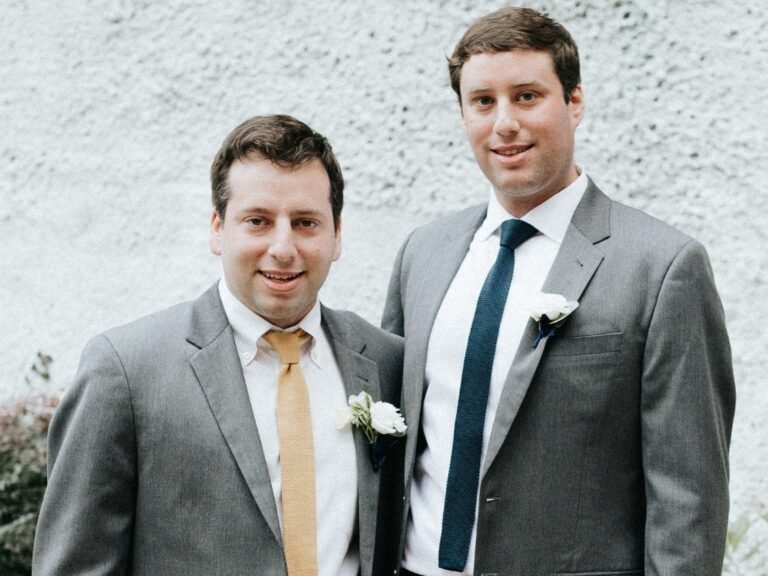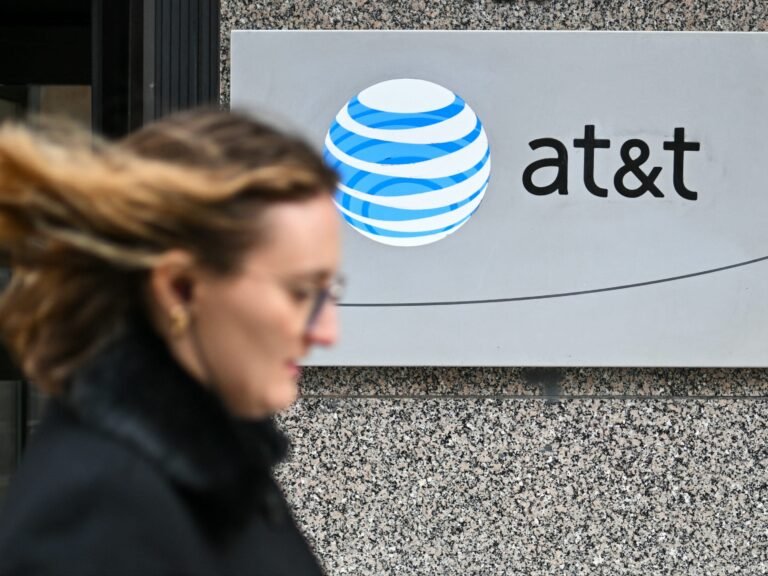
Pinky Cole, founder of the plant-based food chain Slutty Vegan, shares the details of a recent professional upheaval in which she lost control of her company—and then fought to win it back. She also opens up about surviving a harrowing driving incident, the business mistakes that nearly brought everything down, and the emotional and family toll of it all. It’s a raw, unfiltered look at leadership under pressure—and what it takes to rebuild when everything falls apart.
This is an abridged transcript of an interview from Rapid Response, hosted by Bob Safian, the former editor-in-chief of Fast Company. From the team behind the Masters of Scale podcast, Rapid Response features candid conversations with today’s top business leaders navigating real-time challenges. Subscribe to Rapid Response wherever you get your podcasts to ensure you never miss an episode.
We last spoke on stage at the Masters of Scale Summit in October of 2024. And things seemed to be humming—you had new stores, there were some high-profile collaborations, and we talked about investors, including Shake Shack founder Danny Meyer, a great mentor to have. And then everything turned a little bit. Take us back to last fall, how you were feeling about the business, and what unfolded as the year finished out.
I want to preface this conversation as a cautionary tale for founders. When I talk about my journey and the things that I’ve been through, I have seen a massive amount of success. I have gotten the title of every single magazine you could imagine. I’ve graced all the lists. I’ve gotten all of the things. But what I also realized is that it didn’t come without challenges. And just like all things go up, some things do go down.
And when I met with you, Bob, I was in the middle of one of the most powerful yet crunching seasons of my life. Here it is: I’m still making double-digit millions, doing very well as an organization by way of revenue, but operationally, I was not sound. And because I was not sound, the ship was sinking. It started off with a slow sink, and then eventually that ship went all the way under. And there’s no way to save a ship that’s got 10 holes in it. No matter how many buckets you try to get to push the water out, whatever effort that you try to do, there was no way to save it. I went from having challenges with cash flow. You know how it goes, Bob. If the cash flow doesn’t make sense, then the business can’t make sense. And all of these things happen really, really fast.
Some people think that it’s like a slow roll. No, it’s just like one day you’re good, and the next day you’re not. And after I did the taping with you, it got real. And real as in I had to file for an assignment for the benefit of creditors. And for the people who are listening to this: If you don’t know what that is, that is like bankruptcy’s fourth cousin far removed. It is an insolvency proceeding that happens outside of court when a company or organization, the revenue doesn’t speak to the debt that it has. My debt was above the revenue. Here I am, overall, I got about $20 million in debt. I’m burning $100,000 every single week. That is taxing on any entrepreneur, especially when you have a board that, at this point, they’re like: “Okay, how did we get here? What happened?”
And when I look back over everything, I wasn’t in the company day to day. I’m the mascot. I’m the thought leader. I’m doing all these things, putting people in position. We did a lot of great things collectively as an organization, but there were some learning curves there. And what I’ve learned from this experience is that talent is the root of all evil or is the foundation for your success. You want to have a really good organization? You’ve got to have really good talent. And I’m not just talking about people that look good on a résumé. I’m talking about people who can roll with the punches, who are great problem-solvers, who can look at an organization and identify ways in which to make it better. It’s not enough just to say that you worked at a company that was successful. No, you’ve got to come in this one and make sure that this one is successful. A lot of learning there, to say the least.
I want to ask you a couple of questions about that turn that happened—you mentioned losing $100,000 a week. Now you could say, “Well, that’s the plan. We’re going to invest $5 million a year to build a brand.” That it’s part of what the strategy is. It doesn’t sound like that’s where the losses were coming from. Was there a single primary business problem, or was it like a group of things?
It was a group of things. The model has always been proven; we have a good business model. We have a cult following. People love the brand. That wasn’t what it was. What happened is, in the middle of the pandemic is when we got our rise. Could you imagine we raised $25 million and then inflation is through the roof? What would cost $600,000 to open up a Slutty Vegan cost almost $1 million to open up a Slutty Vegan. We opened up 14. We were very ambitious with our goals. On the surface, the business was very buttoned up, very organized. But the reality of it is, we were a bit above our britches. Our C-suite was super expensive. We were paying top dollar for construction and opening up locations. We had one location in particular where it took us four months beyond the completion date to get opened because of permitting—obviously, that cost money. All of the things just came together, and it became a domino effect.
I had three babies in three years. I had a baby in ’21, I had a baby in ’22, and I had a baby in ’23. And I got married, and I’m doing all of these things. And when I started this company, I never coined myself as an operator. I’m not a restaurant operator. I’ll tell the truth. But this has always been a passion project for me, so what I do very well is, I market my business very well. I know how to connect the dots, and I can bring people together. So I brought in people who I thought can manage the operations. And did they do good work? Sure. I’m a professional, sure. But at the end of the day, the level of acumen that we need for the momentum that we have, I needed somebody else. But I want to say that I needed that to happen at the moment in time in which it happened, because it gave me the opportunity to, one, clear my cap table, two, clear the debt. And then it gave me an opportunity to buy my company back and rewrite my story.
The one thing about entrepreneurship is that nobody tells you that it has to be a straight line. You’re going to get some curves, there’s going to be some speed bumps, and you’re going to flip over a couple of times. But as long as you keep driving, that is where you get the juice. And I’ve been thirsty for this new juice of 2.0 in Slutty Vegan, and that’s bringing in a new president, bringing in a new accounting firm, bringing in a new HR team, even down to the damn assistant—everything new. And I wanted to be able to rewrite the story in a way where not only just I could feel good about myself aspirationally, but founders around the world can look at my story and know what to do, and know what not to do, because Pinky went through it.


